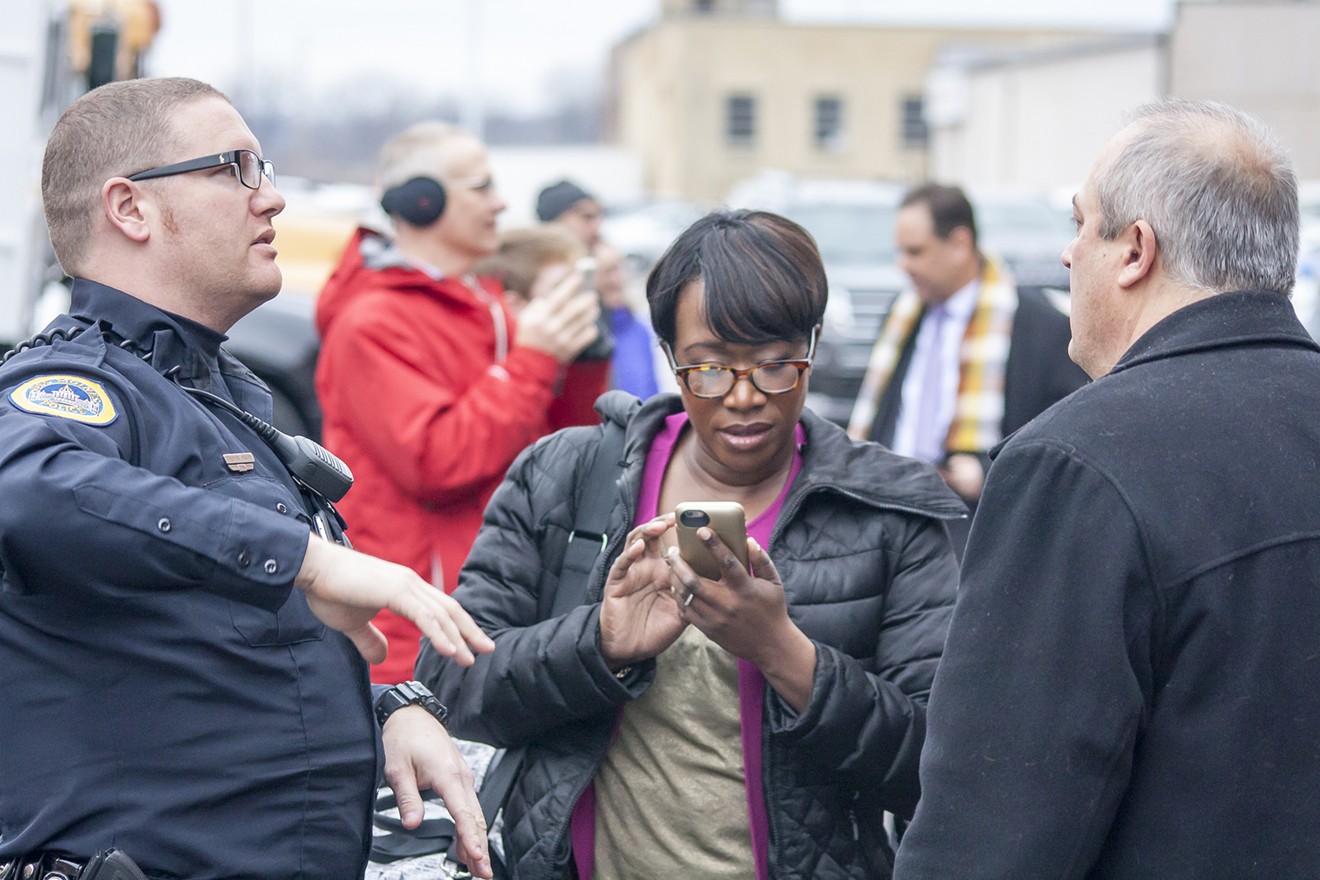MSNBC host Joy Reid has been embroiled in a scandal since December involving an old blog and allegations of homophobia. Apparently, posts on a now-defunct blog by Reid were found and contained numerous anti-gay mentions, many surrounding former Florida governor Charlie Crist.
Just last week, Reid claimed that, after consulting a cybersecurity expert, she had been hacked and the posts had been added or altered to make her look bad.
This has been a common tactic among celebrities when something gets posted on social media that is seen as objectionable. It's become so commonplace that it feels a bit like the boy who cried wolf. These claims are often viewed with a squint and a heavy dose of skepticism.
But, with social media, it can be incredibly difficult to prove one way or another that your profile was hacked. All a person needs to get into your account is a user name and a password. With something like a blog or website, there are far more crumbs to follow.
In the case of Reid, her story was intensely scrutinized and, ultimately, her response changed from indignation to something a bit more subdued. Basically, "I don't remember writing that stuff. It sure doesn't sound like anything I would write," became her new position. Colleagues were quick to jump in with things like, "She isn't the same person. People are allowed to change, you guys!"
The problem with any claim like this one is it requires proof that should be fairly easy to demonstrate. If you look back at old posts that were hacked, there should be some sort of trail in the logs that tells you when the changes were made. After her experts reviewed everything, they determined that, if there were indeed hacks, they happened while she was still writing for the blog. That would be highly unlikely.
One of the more interesting pieces of the puzzle came by way of a little-known-by-non-nerds website called the Internet Archive. More commonly referred to as the Wayback Machine, by people who used it over the years, it is a repository of tons of information posted to the internet. One feature often used by developers and designers allows people to search websites to see snapshots taken from months and years back.
In Reid's case, the Internet Archive had old snapshots showing the existence of the alleged hacked posts made right alongside current ones that didn't have any homophobic slurs in them, clearly written by Reid.
Now, the problem for Reid is she not only wrote some of this nonsense, but she lied to covered it up and then blamed a faulty memory and a changed attitude on the subject. But, it's a little tough to take the moral high ground on any subject when this one finds you rolling about in the mud.
The moral of the story is don't cry "hackers" if you may have done it yourself. Technology isn't magic and, eventually, someone a lot more tech savvy for you will find out for sure.
Support Us
Houston's independent source of
local news and culture
account
- Welcome,
Insider - Login
- My Account
- My Newsletters
- Contribute
- Contact Us
- Sign out

MSNBC host Joy Reid might want to check her phone for hacks too...assuming they exist.
Photo by Phil Roeder via Flickr
[
{
"name": "Related Stories / Support Us Combo",
"component": "11591218",
"insertPoint": "4",
"requiredCountToDisplay": "4"
},{
"name": "Air - Billboard - Inline Content",
"component": "11591214",
"insertPoint": "2/3",
"requiredCountToDisplay": "7"
},{
"name": "R1 - Beta - Mobile Only",
"component": "12287027",
"insertPoint": "8",
"requiredCountToDisplay": "8"
},{
"name": "Air - MediumRectangle - Inline Content - Mobile Display Size 2",
"component": "11591215",
"insertPoint": "12",
"requiredCountToDisplay": "12"
},{
"name": "Air - MediumRectangle - Inline Content - Mobile Display Size 2",
"component": "11591215",
"insertPoint": "4th",
"startingPoint": "16",
"requiredCountToDisplay": "12"
}
,{
"name": "RevContent - In Article",
"component": "12527128",
"insertPoint": "3/5",
"requiredCountToDisplay": "5"
}
]
KEEP THE HOUSTON PRESS FREE...
Since we started the Houston Press, it has been defined as the free, independent voice of Houston, and we'd like to keep it that way. With local media under siege, it's more important than ever for us to rally support behind funding our local journalism. You can help by participating in our "I Support" program, allowing us to keep offering readers access to our incisive coverage of local news, food and culture with no paywalls.
Jeff Balke is a writer, editor, photographer, tech expert and native Houstonian. He has written for a wide range of publications and co-authored the official 50th anniversary book for the Houston Rockets.
Contact:
Jeff Balke
Trending News
- Dan Patrick Sets Off Alarm Bells For Public School Advocates With His Property Tax Trial Balloon
- Texans DE Will Anderson Among Favorites to Win 2024 Defensive Player of the Year
- COVID-19 On Steep Decline, But Physicians Advise Public To Continue Vaccines
-
Sponsored Content From: [%sponsoredBy%]
[%title%]

Don't Miss Out
SIGN UP for the latest
news, free stuff and more!
Become a member to support the independent voice of Houston
and help keep the future of the Houston Press FREE
Use of this website constitutes acceptance of our
terms of use,
our cookies policy, and our
privacy policy
The Houston Press may earn a portion of sales from products & services purchased through links on our site from our
affiliate partners.
©2024
Houston Press, LP. All rights reserved.





